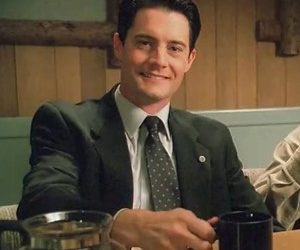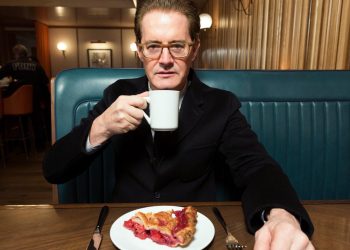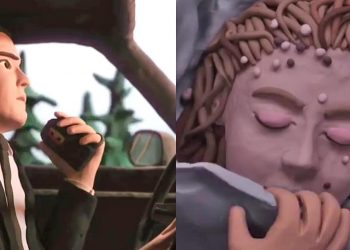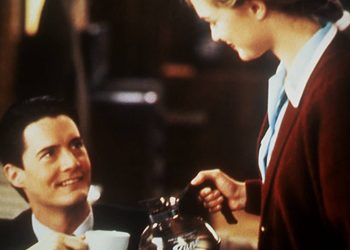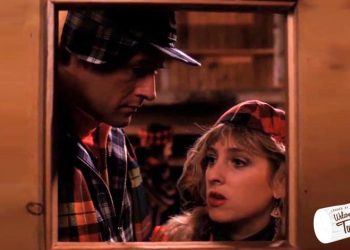No products in the cart.
An Excerpt From “The Guild Of Saint Cooper” (Book)
An immaculate Dale Cooper emerges from the shadows in this excerpt from “The Guild of Saint Cooper”, a new novel by Shya Scanlon.
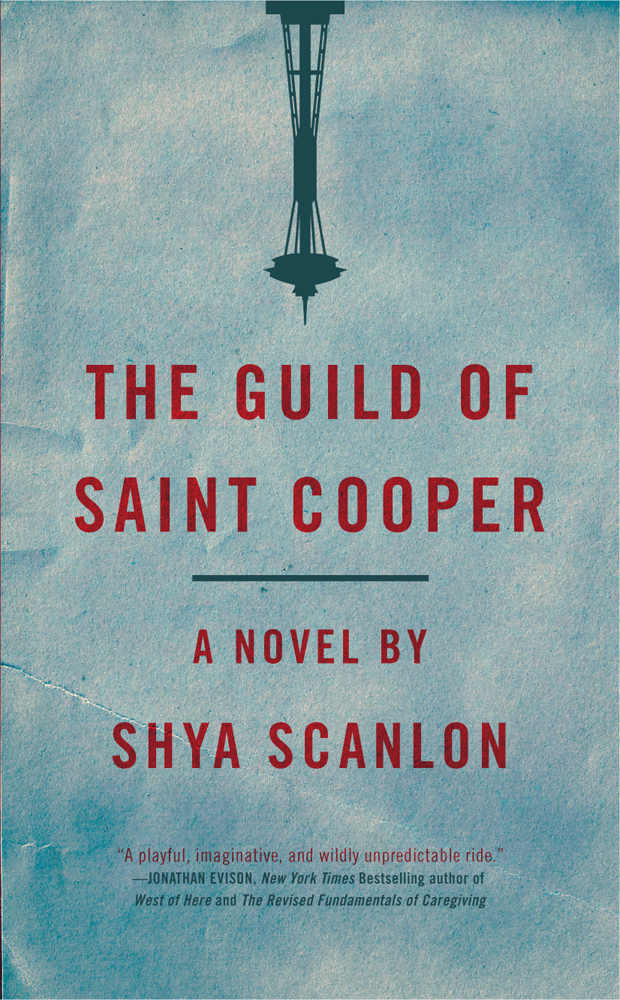
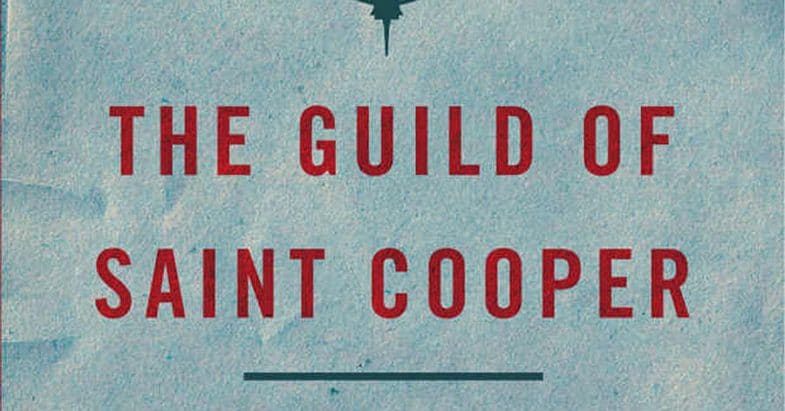
The Guild of Saint Cooper is about an obscure author in a near-future post-evacuation Seattle who is drawn into writing a revisionist history that sets the book itself unspooling backward into its own alternate history and into a world—featuring giant rhododendrons, space aliens, and a certain Special Agent Dale Cooper—increasingly both familiar and unrecognizable.
Don’t worry. You didn’t just read the description of a fan-written Twin Peaks sequel.
Shya Scanlon‘s latest novel is not so much fan fiction as it is a twisted tribute to one of the most inspiring characters ever seen on television. A fan of Twin Peaks since his late teens, the New York-based author found a way to incorporate Dale Cooper into his story, even giving the FBI’s finest a voice, yet staying clear of any attempt to enter David Lynch and Mark Frost’s unique world. Sure, there are Twin Peaks references throughout the book, but Guild’s tone is different and influences are many, most notably Tim Hilton’s biography on John Ruskin. Below you’ll find a short excerpt in which the titular character appears to the lead, Blake.
The Guild of Saint Cooper is out now on Dzanc Books and available as paperback and eBook from Amazon and Barnes & Noble.
The Guild of Saint Cooper by Shya Scanlon (excerpt)
“Can I help you?” he asked.
The banner read: Welcome, Weyerhaeuser Investment Summit!
“Did a man come in here? Tuxedo, slick hair, arms full of poker chips?”
The first man looked over at the other and shrugged, and the second, without
turning around, spoke slowly.
“This area of the hotel is reserved,” he said, “for a private party.”
I stood there for a moment, not knowing what to do. Mitch must surely have
returned by now, and there’d be no shame in heading back to the casino floor to
explain what had happened. Who could blame me for losing Cooper? But a greater
part of me felt compelled to see this through, to locate the man before reporting
back. To have an idea, at least, where he’d gone.
Large round tables adorned with green tablecloths and triangular paper
trees filled the cafeteria.
“Is this the Weyerhaeuser from Seattle? Weyerhaeuser Weyerhaeuser?”
“Hey, what did I say?” the second man said, turning around.
He hung his banner corner from a hook and began to climb down the ladder.
I took a step back, only a few feet now from the swinging door behind me, close
enough to hear the staff hurrying about their errands in the hall.
“Look, just a yes or no is all I’m asking. If he didn’t come in here, great. He’s
not part of the event either, so maybe you told him to leave too. Did he go out
through the front door?”
Why wasn’t Mitch calling, I wondered. The man began walking toward me
from across the room. He had curly red hair, and it strobed slowly as he moved
beneath the lights. I took out my cell to see if I’d missed a call, but its screen was
dark—I’d turned it off the night before. I pressed the power button and the screen lit
up, but it would take a minute to boot and find a signal. I didn’t have a minute. The
man came closer, and I stepped back again, until I could feel the cool metal door
against my shoulders. I noticed the first man, still on the ladder, was speaking
quietly into a small radio, and I heard it click on and off as he sent and received.
Surely calling Security. But then why the aggressive posturing? Was I about to be
physically removed from the room? I decided to save him the trouble and pushed
back against the door—if he wanted me to leave, fine, but there was no cause for
altercation—but the door did not open. I looked back through the head-high
window to the hallway beyond, the hallway I’d just come in from, and found it dark.
There was no activity, there was no staff, and the red-haired man was closing in.
My phone let out a single, clear note to indicate a voicemail, and I stepped
quickly behind a round table while dialing Mitch. When I looked back up the man
was standing two tables away, the first man coming quickly to join him. Together,
they moved toward me, splitting apart, and by the time Mitch answered they’d
gotten to either side of my table and the first man reached forward and slapped the
cell phone out of my hand. It skittered across the floor and, still on, weakly
broadcast Mitch’s voice.
“Blake! Blake, what’s going on. Blake?”
“Help!” I called. “Look for the Wey—”
The redhead grabbed me and wrapped a big hand around my mouth. I
struggled against his grip, pulling at his arm and kicking backward, but he held fast,
engulfing me, and lifted me off the ground in a bear hug tight enough to push the air
from my lungs. As quickly as he squeezed, though, he released, just enough to let me
gasp, his hold now more like a swaddle.
My body went limp. The man smelled like women’s perfume, a sweet, bright
smell that tingled my nose, and as he held me, the other man looked up at me and
shook his head. I farted. Someone emerged from the shadows along the side of the
room, mere feet from where I’d stood. He was still partially obscured by darkness,
but I could see his silhouette against the illuminated wall behind him. It was Cooper,
not a hair out of place.
“Did you know,” he said, “that New York City has a goose overpopulation
problem? It’s true. And as they pose a threat to airlines operating out of the
Kennedy, LaGuardia, and Newark airports—not to mention the smaller airfields in
the area catering to private and other non-commercial aircraft—the Department of
Agriculture has taken it upon itself to cull the population using a variety of tactics
meant to make their preferred habitats inhospitable.”
Cooper’s voice was calm, dispassionate, but not cold. It was instead curious,
alive with a sincerity that betrayed the seriousness of his interest in this anecdote,
as though he were working something out for himself, and, though he was speaking
to me, I was incidental to the process.
“These tactics include oiling the eggs, planting tall grasses, scaring the birds
away with trained dogs, and a variety of other measures. But do you know what the
primary tactic is? Don’t answer. The primary tactic is deception.”
With this, Cooper stepped forward, allowing me to see him clearly. For the
first time since the Elk’s Club parking lot I felt a rush of recognition, an untethered
emotional response that flooded my body in waves. It was more powerful than déjà
vu, more urgent, as though I hadn’t had this experience before, but should have. As
though the universe were somehow correcting itself, or at least correcting my
position in it. Cooper’s tuxedo was tight and immaculate, painted on, and he signaled
to the redhead, who let me down slowly, then released me. As my feet touched the
floor I staggered, then felt hands on my shoulders. I tried to nod.

The Guild of Saint Cooper is available as paperback and eBook from Amazon and Barnes & Noble.







